Economy
Cooperative society key driver of economic growth – Adamawa Gov
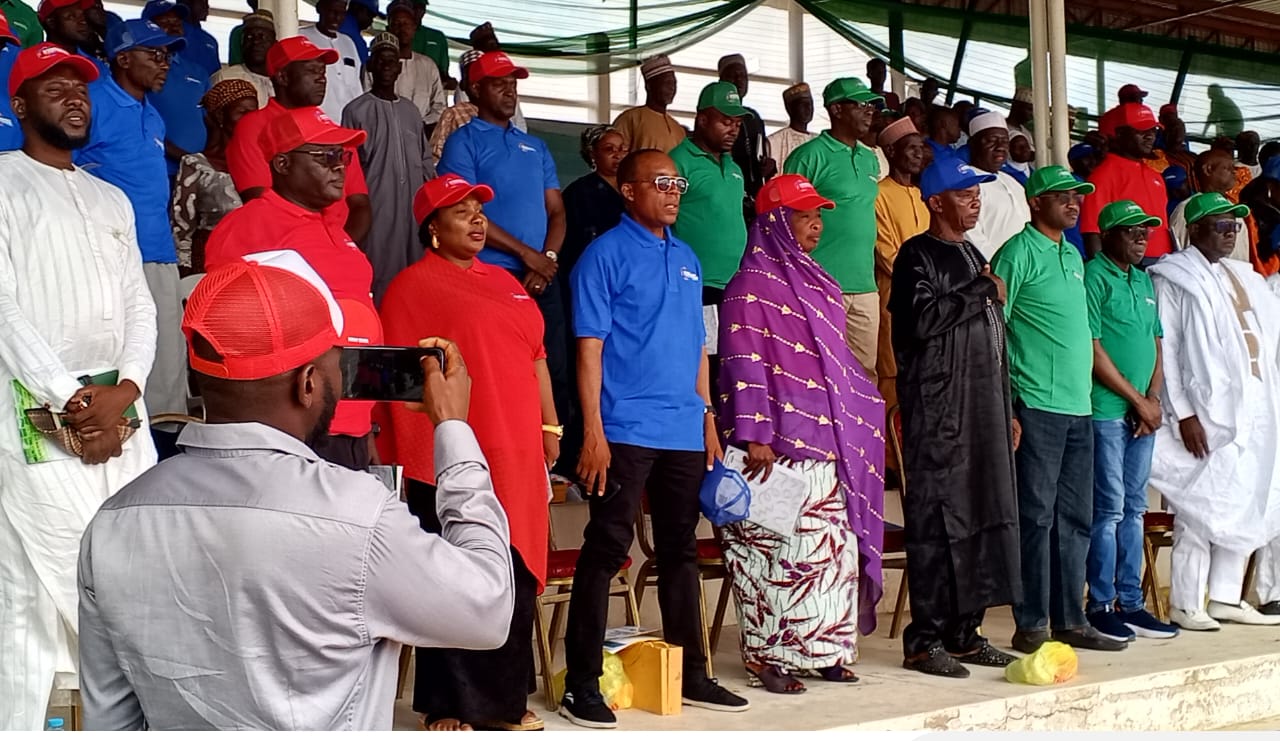
By AOur Correspondent
Gov. Ahmadu Fintiri of Adamawa, has described the cooperative society as a key driver for economic growth and sustainable solutions in the society.
Fintiri stated this at the commemoration of the International Day of Cooperative 2025 on Saturday in Yola.
The event is with the theme: “Cooperatives, Driving Inclusive and Sustainable Solutions for a Better World”.
Fintiri who was represented by Hammanjumba Gatugel, Commissioner, Ministry of Entrepreneurship Development, said government had invested heavily in the sector, for the economic development of the state.
“Here in Adamawa, we can boldly say that Gov. Fintiri is cooperative friendly.
“On realisation of the importance of cooperatives in creating job opportunities and wealth creation, he has been investing so much in this sub sector through this ministry.
“He has consistently empowered farmers of cooperative societies with agricultural inputs, like fertilisers, hybrid seeds, herbicides, insecticides, knapsacks and water pumps, for dry season farming to mention but a few,” he said.
Alhaji In Yunusa Gafai, Chief Operating Officer, Agribusiness Support Programme (ADAS-P) confirmed that through the state Agribusiness Cooperative Financing Agency, farmers had access to farming inputs and irrigation equipment.
According to him, these have empowered thousands of rural farmers and lifted many out of poverty in the state.
He reaffirmed that the cooperative remains one of the strongest vehicles for empowering communities and achieving inclusive economic growth.
In his address, Mr Mamman Malgwi, Chairman Local Organising Committee, encouraged people in the state to form cooperative society, for maximum benefit that would drive them out of poverty.
According to him, cooperative society is one of the legitimate ways of earning money for economic growth and attraction to government support.
The commemoration witnessed the presentation of an award of excellence to outstanding cooperative societies in the state
Agreement
📢 PUBLIC ANNOUNCEMENT

S-Mahi Global Services Ltd has launched a new nationwide online employment platform to fight unemployment and connect young people with major job opportunities both locally and internationally.
In this program:
= Agents will be recruited in each of the 774 Local Government Areas across Nigeria. Every LGA will have 6 agents and a dedicated website to support the people of that area.
= Likewise, anyone seeking employment – from SSCE up to Professor – can register and be connected with top companies, institutions, and NGOs in Nigeria and abroad.
= In this first phase, 4,644 job openings have been announced, and more opportunities will continue to open nationwide.
—
What Makes This Platform Different:
= It connects every community with Local Governments, States, and the entire nation.
= It gives young people direct access to employment through screening and company linkages.
= A special Application has been designed and will soon be officially launched at ICC Abuja to make the job search process easier.
—
Eligibility for Employment:
= All Nigerians between the ages of 18 and 35 can apply.
= Minimum educational requirement: SSCE (higher qualifications have an added advantage).
—
Registration Fee:
= Each applicant is to pay ₦2,500 as a processing and screening fee.
= This is not a payment to buy jobs. It is strictly for administrative and screening purposes.
= Only successful applicants will be contacted via email, and screening will be conducted in every state.
—
⚠️ IMPORTANT NOTICE:
S-Mahi Global Services Ltd does not call applicants on the phone regarding job offers.
All official communication will be done only through our company email:
📧 smahiglobalservices9@gmail.com
If anyone contacts you by phone claiming to represent the company for job offers, please ignore and report immediately.
—
🌐 Website: www.smahiglobalservices.com
📞 Contact (for inquiries only, not for job offers): +234 / +2349052373245
+2348069278540/+234808 024 7401
🔊 S-Mahi Global Services Ltd – Together we fight unemployment!
Economy
Dr. Nasir Ibrahim, FCE Zuba Provost Forge Vision for Nigeria’s Next Chapter
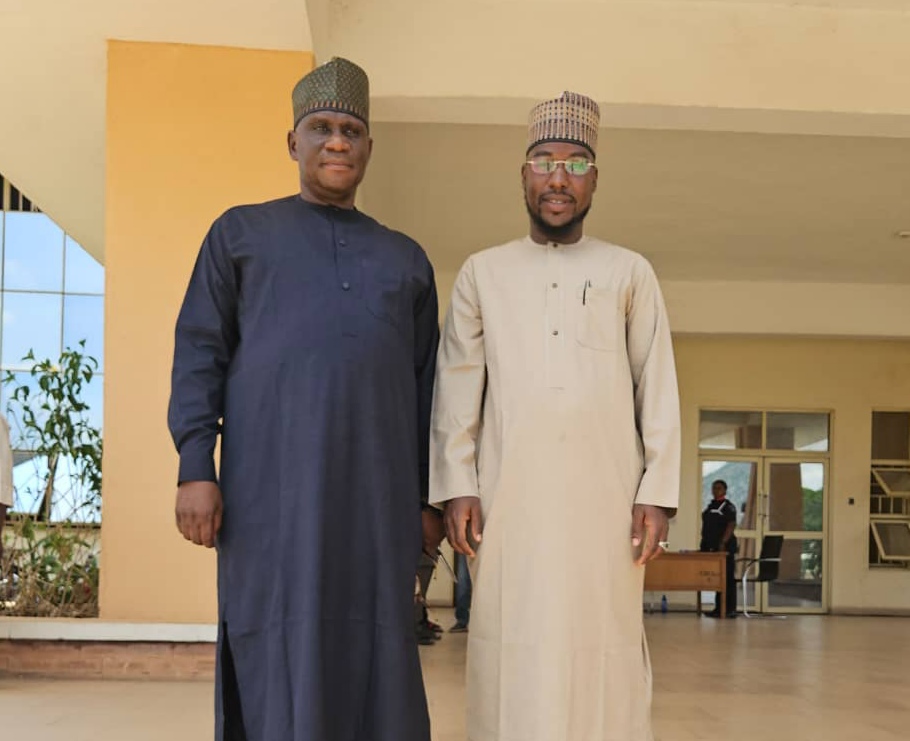
By Our Correspondent
In a significant move toward fostering national dialogue on Nigeria’s political and economic development, Dr. Nasir Ibrahim, popularly known as the Magayakin Kumfulata, paid a courtesy visit earlier today to Dr. Mundi, the Provost of the Federal College of Education (FCE), Zuba, Abuja.
The meeting, held at the Provost’s office, focused on exchanging ideas and perspectives aimed at advancing Nigeria amidst its current challenges. It provided a platform for thoughtful discussions on critical national issues, particularly emphasizing leadership, education, economic diversification, and youth empowerment.
During the conversation, Dr. Mundi provided profound insights into Nigeria’s political climate, highlighting the urgent need for strong, visionary leadership and a culture of accountability. He underscored the pivotal role civic education must play in nurturing democratic values among citizens, stressing that institutions like Colleges of Education have a crucial responsibility in building national consciousness and grooming future leaders with the right mindset.
On the economic front, Dr. Mundi reflected on pressing issues such as rising inflation, unemployment, and Nigeria’s long-standing over-reliance on oil revenues. He advocated for immediate and strategic economic diversification, calling for a renewed focus on agriculture, technology, and education as key sectors to drive sustainable growth.
According to Dr. Mundi, empowering the education sector to actively contribute to economic development is critical. He emphasized promoting entrepreneurship, enhancing skill acquisition programs among students, and fostering strong partnerships between educational institutions and industry stakeholders to bridge the skills gap and prepare graduates for the demands of the modern workforce.
Speaking after the meeting, Dr. Nasir Ibrahim described the engagement as highly productive and inspiring, praising Dr. Mundi’s visionary approach to national issues. He noted that the discussions offered practical and actionable ideas for stimulating Nigeria’s political and economic transformation.
Dr. Mundi, in turn, expressed his appreciation for the visit and reiterated his openness to future collaborations geared toward promoting national progress and societal development.
The meeting ended on a positive note, with both leaders reaffirming their commitment to contributing meaningfully to Nigeria’s journey toward sustainable growth and prosperity.
Economy
Nigeria’s Debt Hits N144.67 Trillion in 2024 – DMO Report
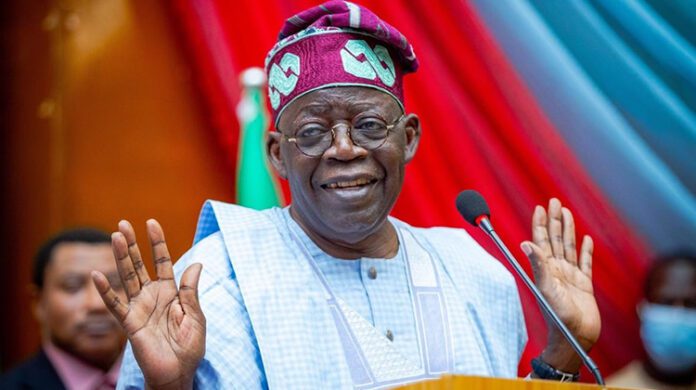
By Our Correspondent
Nigeria’s public debt stock has surged to a staggering N144.67 trillion ($94.23 billion) as of December 31, 2024, according to the latest report released by the Debt Management Office (DMO). This represents a sharp increase of 48.58% when compared to the N97.34 trillion recorded in December 2023.
The report also indicates a moderate quarter-on-quarter rise in the debt profile. Between September and December 2024, Nigeria’s total debt grew by N2.35 trillion, or 1.65%, moving from N142.32 trillion to N144.67 trillion.
A breakdown of the figures reveals a significant spike in external debt, which climbed by 83.89% within the year. The foreign debt stock rose from N38.22 trillion ($42.50 billion) in December 2023 to N70.29 trillion ($45.78 billion) by December 2024. This substantial increase is attributed to both fresh borrowings from international creditors and the continued depreciation of the Naira against the dollar.
On the domestic front, Nigeria’s local debt stood at N74.38 trillion ($48.44 billion) in December 2024, slightly up from N73.43 trillion ($45.87 billion) in September. The Federal Government remains the largest borrower, with its domestic debt climbing from N69.22 trillion in June to N70.41 trillion by the end of the year.
In a bid to support the 2024 national budget amidst dwindling revenue and rising expenditure, the Federal Government raised $2.2 billion in December 2024 through the issuance of Eurobonds. This marks Nigeria’s return to the international capital market after a brief hiatus, with the funds expected to help bridge critical financing gaps in the national fiscal plan.
Economic analysts have raised concerns over the sustainability of the country’s debt, especially in light of the increasing cost of servicing loans and the limited revenue base. With inflation on the rise and pressure mounting on public finances, the Federal Government faces tough choices in managing its growing debt burden without stifling development.
-

 Politics2 years ago
Politics2 years agoFormer Gombe State APC Promoters Forum Chairman Attacked Following Political Commentary
-
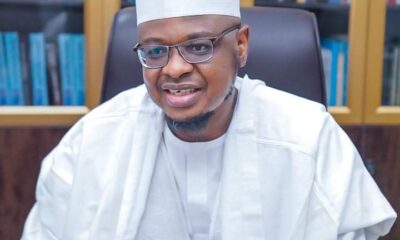
 Leadership2 years ago
Leadership2 years agoBreaking: African Union Appoints Pantami as Co-Chair of the 4th Industrial Revolution Policy Council
-
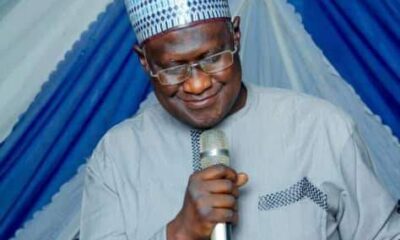
 Appointment1 year ago
Appointment1 year agoGombe State Indigene, Appointed New Vice Chancellor (ATBU)
-
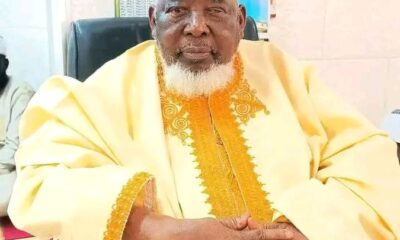
 Death12 months ago
Death12 months agoProminent Nigerian Islamic Scholar, Sheikh Sa’idu Hassan Jingir, Passes Away
-
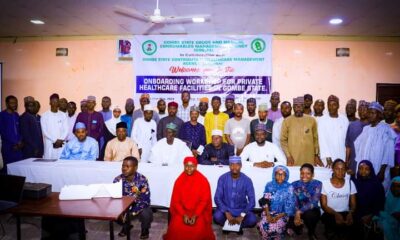
 Health2 years ago
Health2 years agoGombe State Organizes Onboarding Workshop for Private Healthcare Facilities
-
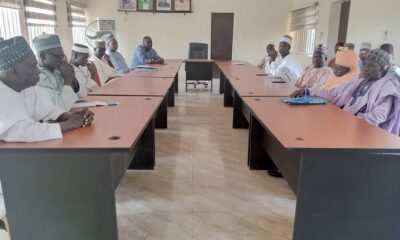
 Water2 years ago
Water2 years agoGombe Government Mobilizes Stakeholders to Combat Illegal Water Connections
-
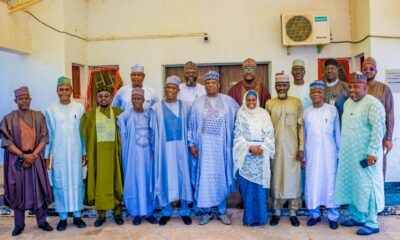
 Politics2 years ago
Politics2 years agoGombe State Inaugurates Human Capital Development Council
-
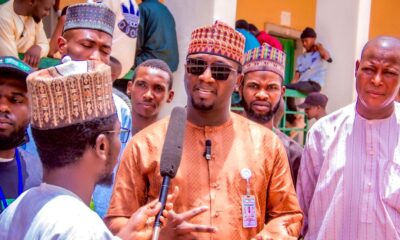
 Politics2 years ago
Politics2 years agoGombe State Launches Presidential Palliative Program (PPP) to Aid Small Businesses
